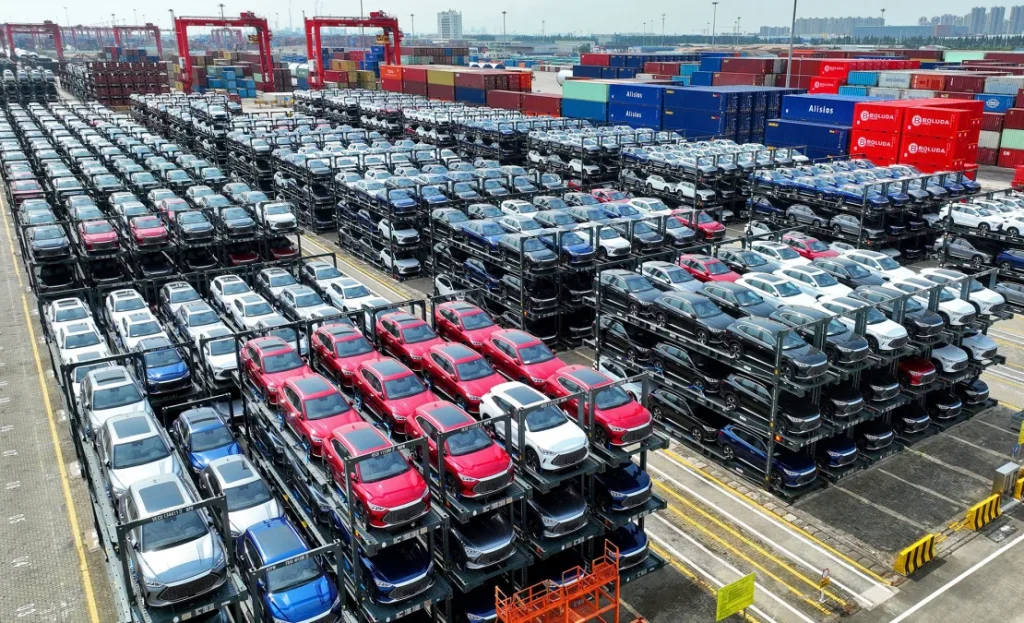The Chinese company sold a record number of cars last year, including 525,409 battery electric vehicles (BEVs) in the three-month period to December 31, according to a stock exchange filing. Tesla said Tuesday it delivered 484,507 — also a record— during the quarter.
Over the year as a whole Elon Musk’s Tesla (TSLA) still outpaced BYD, selling 1.8 million electric cars. BYD sold 1.57 million electric vehicles last year, up 73%, as well as 1.44 million hybrids.
But that means Tesla’s gap over its Chinese rival, at about 230,000 units in 2023, was significantly narrower than the 400,000 units posted in 2022.
The rapid growth of BYD, which is backed by Warren Buffett, is a symbol of China’s rising EV industry.
China is progressing quickly in its transition to electric vehicles, thanks to strong government support for the industry.
Beijing has set a target that at least 20% of new cars sold annually by 2025 should be new energy vehicles (NEVs), which include BEVs, plug-in hybrids, and hydrogen fuel cell vehicles. By 2035, the government says, NEVs should become the “mainstream” of new car sales.
The first goal was achieved in 2022, about three years early. The second may also be reached earlier than expected.

In the first 11 months of 2023, 8.3 million units of new energy vehicles were sold, accounting for more than 30% of total car sales, according to data released last month by the China Association of Auto Manufacturers.
Miao Wei, former minister of China’s Ministry of Industry and Information Technology, said at a car forum in November that the government’s NEV penetration target of 50% by 2035 is likely to be achieved by 2025 or 2026 at the latest, according to state media.
China’s leading role in the global industry is also thanks to its market scale, cheap labor and supply chain dominance, according to analysts.
“China is now leading in production and increasing its comparative edges, banking on its massive domestic market and the first mover advantage,” analysts from Natixis Asia, a French investment bank, wrote in a report in late November.
Its first mover advantage and government support through infrastructure investment and subsidies have made it easy for Chinese EV makers to expand domestically and internationally, they said.
However, intensifying competition and a brutal price war last year have impacted the profit margins of many car makers.







